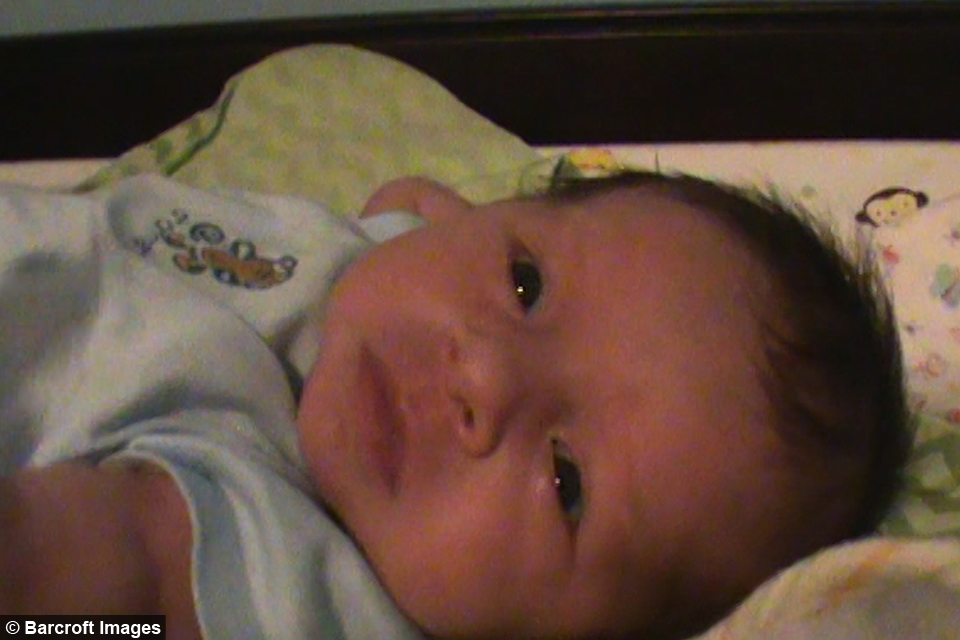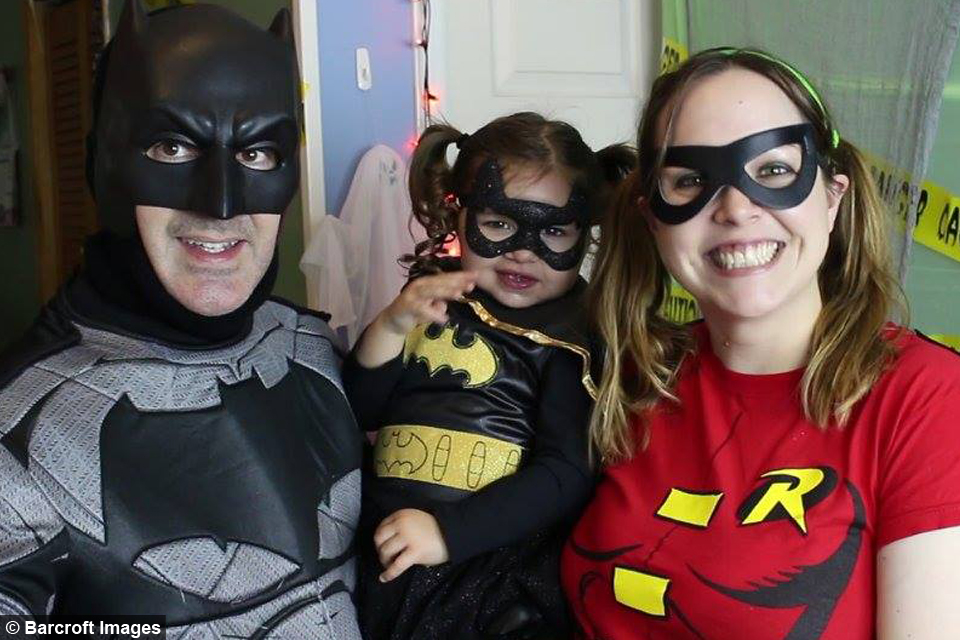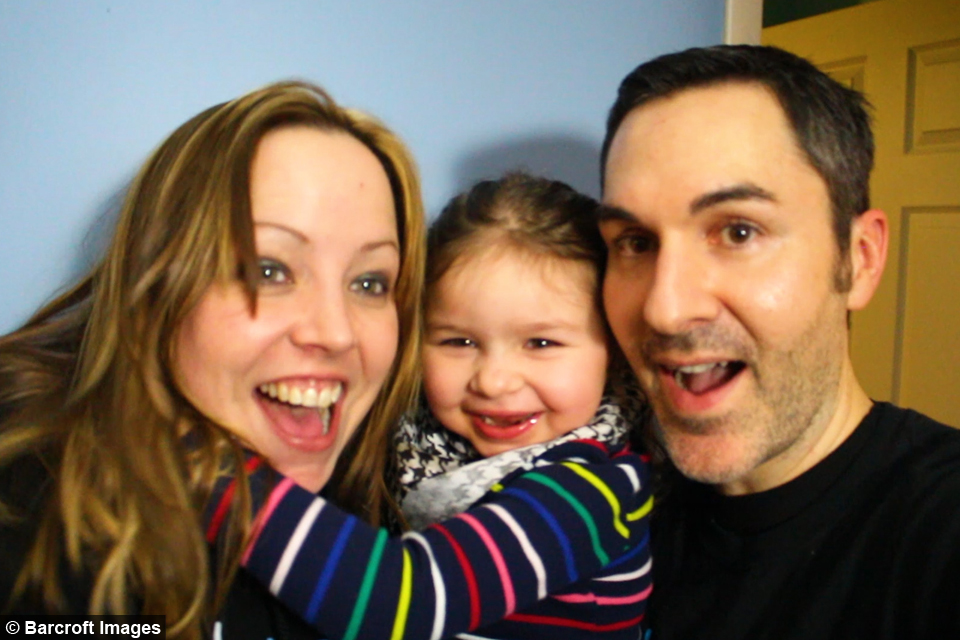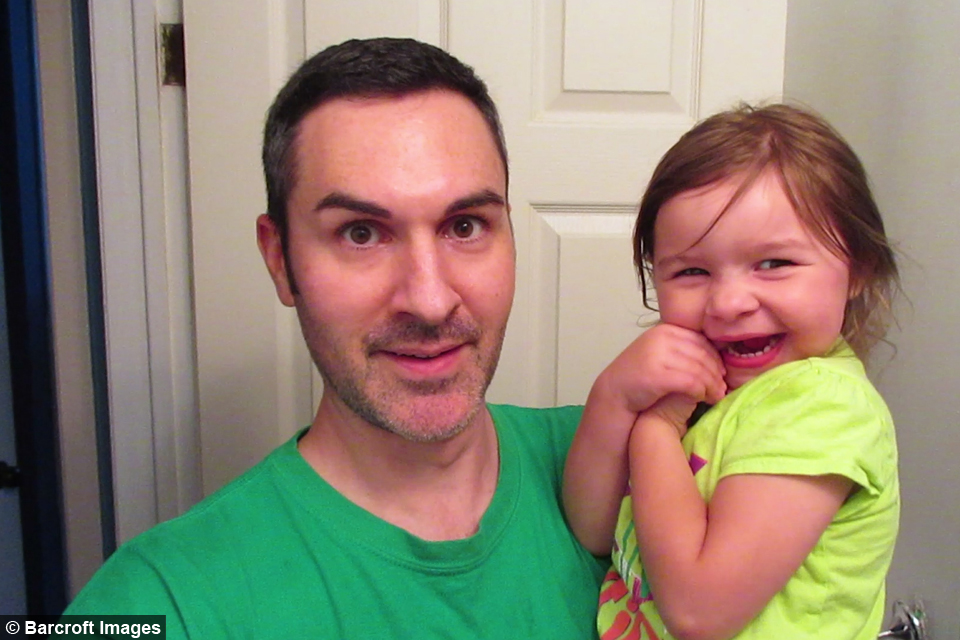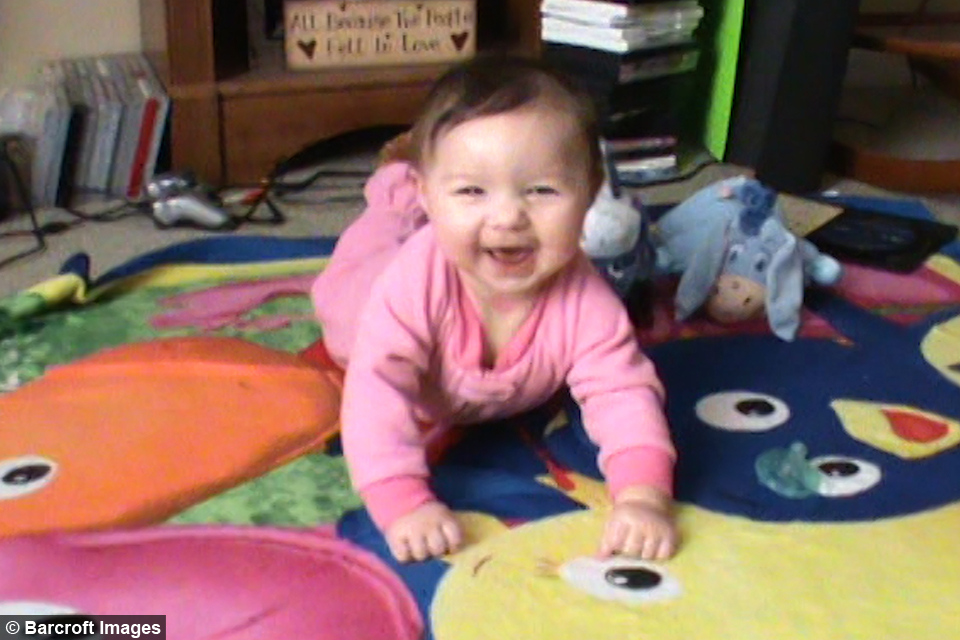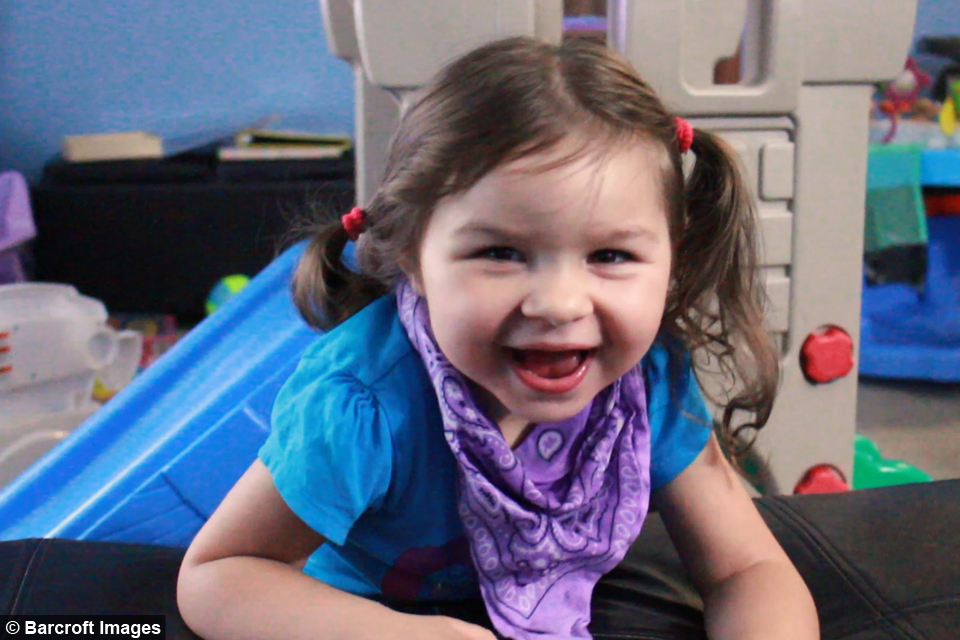The Girl Who Doesn’t Sleep
By Nathalie Bonney @nathaliebonney
Scroll down for the full story
Videographer / director: Kirk and Robin Hisko
Producer: Nathalie Bonney, Ruby Coote
Editor: Joshua Douglas
Exhausted parents Robin Audette and Kirk Hisko are lucky to get between four to six hours sleep a night, but their energetic daughter Ever can survive on as little as an hour and a half – and even been known to sleep at 20 minute intervals throughout a whole night.
The reason for Ever’s sporadic sleeping patterns? Angelman syndrome: a genetic and neurological disorder, which occurs in approximately 12-20,000 people.
It’s not uncommon for Angelman syndrome to be misdiagnosed as Cerebral Palsy or Autism, sharing many of the same symptoms including trouble sleeping.
Robin, 35, said: “If we can get anywhere between four-six hours out of her than we’ve done good but there are nights she wakes up after an hour and a half she’s good to go for another six hours. We’ve kind of learnt to just roll with it.
“We’re only human and we need to sleep – but she doesn’t. It’s amazing, she can function with no sleep and still be happy.”
Robin works at her family restaurant in Renfrew, Ontario, Canada while 40-year-old Kirk stays at home with Ever as well as filming and editing videos for the family’s Youtube channel - Hisko Family Fun.
The husband-wife tag team take turns sleeping while the other parent is with Ever. But the Hisko’s are just happy to finally have a diagnosis for their daughter.
Aside from not sleeping, other symptoms of Angelman syndrome include developmental issues and delays, including mobility and lack of speech and feeding difficulties.
A short attention span, uplifted arms and a constant happy demeanour are other symptoms.
Noticing that their happy child wasn’t progressing as fast as other children her age, Robin and Kirk decided to seek professional medical help at the Ottawa Children’s Centre.
Robin said: “I think we’re close to a hundred appointments now since the original assessment. It took almost eight months since the first assessment to actually get in with our developmental paediatrician.
“People were just hoping that everything was okay because she was so happy, but it was almost too happy.
"When we met the Doctor, Ever was a little over two-years-old and she had started physio and speech therapy and the Developmental Paediatrician put us on the waiting list to meet with neurology and genetics.”
During this waiting period the proud parents had seen their daughter take her first steps thanks to a back brace.
Robin said: “Our physiotherapist thought that maybe Ever, as well as having low muscle tone was having some sensory problems. We put a special body pressure vest on her and almost immediately she began walking.
When she started walking at home on her own with no vest it was wonky but it was happening. To finally see her walking around was amazing.
Spurred on by Ever’s walking achievements, Kirk and Robin hoped a full diagnosis would ensure Ever got the care she needed to make further progress.
Just a few days after meeting the Developmental Paediatrician, their homeworker called and asked if they’d heard of Angelman syndrome.
“I’d never heard of Angelman syndrome, it seems strange to have never heard of something that in an instant can become your whole world,” said Robin.
Nine weeks later the Hisko’s had a concrete diagnosis: Angelman Syndrome, caused by a genetic mutation, or absence, of the gene UBE3A located on Chromosome 15 in the brain.
Robin said: “When the doctor told us, I had a moment of course where I cried because you can believe something’s true and then you can know something is true but we kept moving forward.
“Our lives have changed enormously in lots of different ways - mostly good. We finally feel like we have our answer, we understand what’s going on. There were so many things that didn’t make sense before.”
Now a happy three-year-old, while there are limits to what Ever can do, she’s not aware of them.
Robin said: “She’s amazing, nothing gets her down and nothing stops her and she never stops trying. She doesn’t even seem to understand that she’s not doing everything that everyone else is doing because she’s having such a great time and she sends out so much love.”
Ever cannot speak and communicates by pointing at pictures but her parents plan to send her to mainstream school.
Although there is currently no cure, increased research into Angelman syndrome has been encouraging.
Robin said: “They’ve pinpointed the gene, they’ve pinpointed the problem. They are trying to do amazing things. They feel a cure is on the horizon. We’re very excited for that possibility.
“We think she’s amazing and we think she’s perfect. Why we would want a cure is more to make her life easier for her. For her to be able to feed herself, for her to be able to tell you what she wants: anything that could make it easier for her to be in the world would be amazing; however, at the moment she’s happy and that’s all I ever want.
“Everybody who’s met Ever loves her. She’s a beautiful, brilliant ray of sunshine. She bounces around and you can’t help but smile. Everyone who meets her falls in love.
If she would sleep she’d be absolutely perfect!”
